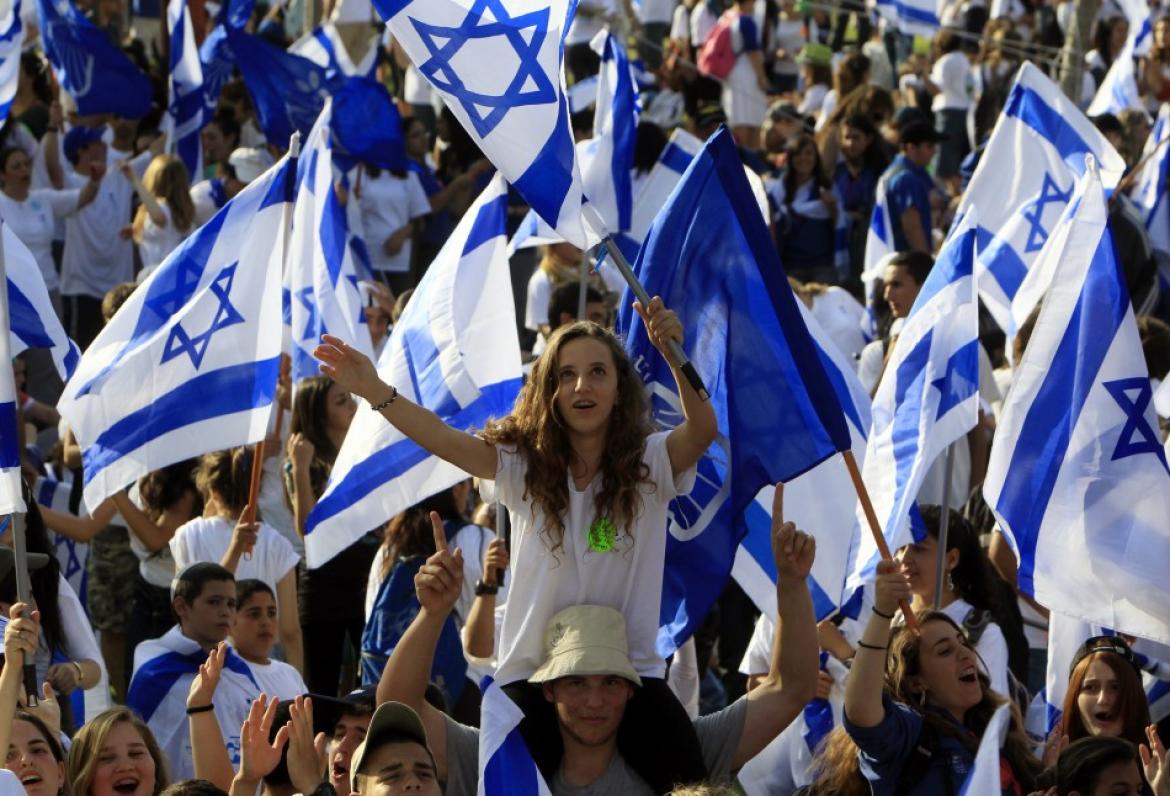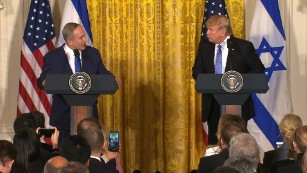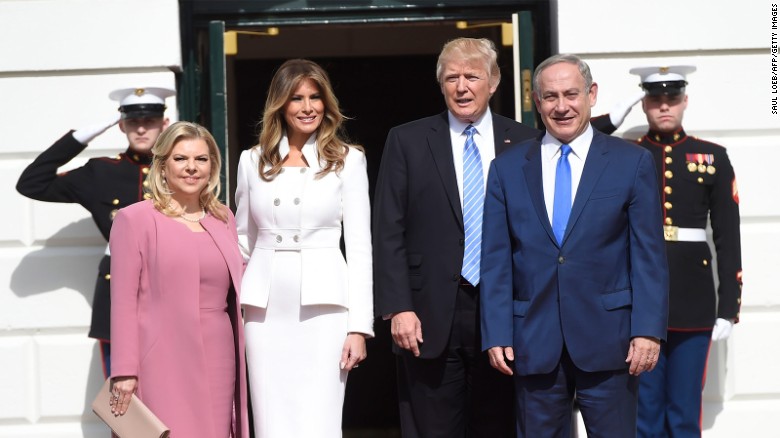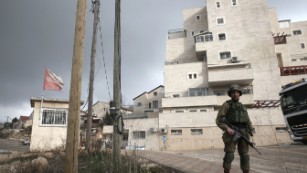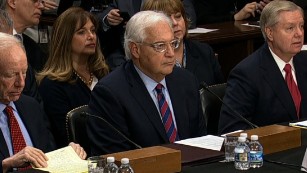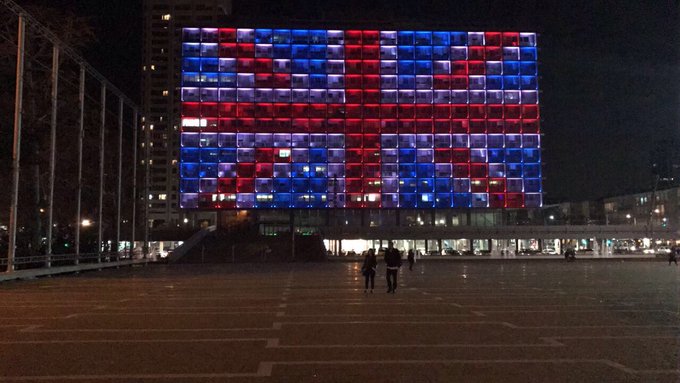Table of findings
MAIN HIGHLIGHTS
- A majority of Israelis (55%) and a large minority of Palestinians (44%) support the two-state solution. By contrast, support for a one-state solution stands at 36% among Palestinians, 19% among Israeli Jews and 56% among Israeli Arabs.
- Support for a detailed permanent agreement package, one based on previous rounds of negotiations, is lower than the support for the two-state solution. Only 42% of Palestinians, 41% of Israeli Jews, and 88% of Israeli Arabs support a peace agreement package that comprises: a de-militarized Palestinian state, an Israeli withdrawal to the Green Line with equal territorial exchange, a family unification in Israel of 100,000 Palestinian refugees, West Jerusalem as the capital of Israel and East Jerusalem as the capital of Palestine, the Jewish Quarter and the Western Wall under Israeli sovereignty and the Muslim and Christian quarters and the al Haram al Sharif/Temple Mount under Palestinian sovereignty, and the end of the conflict and claims.
- A quarter to one-third of Israelis and Palestinians who oppose the permanent agreement package are willing to reconsider their opposition to the peace deal if it was accompanied by a peace agreement with all Arab states according to the Arab Initiative's principles (for the Israeli public), and an Israeli acceptance of that initiative (for the Palestinian public). This incentive alone increases the overall support for the combined package on both sides, up to 57% to 59%, when those who changed their minds are added to the original supporters. While some of the incentives presented to those who opposed the package manage to change the attitude of fewer people, others, including non-zero sum ones, presented separately to each side, are able to change the attitude of many more people, 40% and above of the opposition, thereby considerably increasing the support to the combined package to much higher levels, up to 65% on both sides.
- In selecting between bilateral, multilateral, and unilateral approaches to peacemaking, Palestinians prefer the multilateral (51%) while the Israelis prefer the bilateral (61%). Of various multilateral forums, an Arab forum, in which Saudi Arabia, Egypt and Jordan participate, is the least rejected by the two sides. All other multilateral forums – an American-led, an EU-led, a US-Russian led, or an UN-led forum – are acceptable to one side while unacceptable to the other.
- Two-thirds of the Israelis and more than three quarters of the Palestinians view US President Donald Trump as pro-Israel. Moreover, a minority on both sides, 28% of Israeli Jews and 10% of Palestinians, think he will seek to renew peace negotiations
- Large majorities of Israelis and Palestinians estimate as low the chances that an independent Palestinian state will be established in the next five years.
The Palestinian sample size was 1,270 adults interviewed face-to-face in the West Bank, East Jerusalem and Gaza Strip in 127 randomly selected locations between December 8 and 10, 2016. Number of interviewees in the West Bank (including East Jerusalem) is 830 and in the Gaza Strip 440. The margin of error is 3%. The Israeli sample includes 1,207 adult Israelis interviewed by phone in Hebrew, Arabic or Russian between December 19 and 30, 2016. The number of Jews interviewed inside Israel is 727, West Bank settlers 300, and Israeli Arabs 180. Size of Israeli settlers and Israeli Arabs was deliberately increased in order to allow for detailed analysis of their attitudes. But the combined Israeli data file has been reweighted to reflect the exact proportionate size of these two groups in the Israeli society. The data file was further reweighted to reflect current societal religious-secular division. The margin of error is 3%. The following summary has been drafted by Dr. Khalil Shikaki and Walid Ladadwa from PSR, and Dr. Dahlia Scheindlin together with the Tami Steinmetz Center for Peace Research and its director, Dr. Ephraim Lavie.
MAIN FINDINGS
The following sections compare and contrast findings regarding Palestinian and Israeli public opinion in general. However, when important differences, mainly between Israeli Jews and Arabs, or between Israeli Jews living inside the Green Line and settlers living in the West Bank, or between Palestinians living in the West Bank (West Bankers) and Gazans were found, we also provided the respective findings for these sub groups.
(1) Israeli-Palestinian Peace Process
Two-state solution, one-state solution, and two-state confederation: Today, a majority of Israelis and a large minority of Palestinians– 55% of Israelis (50% among Jews and 82% among Arabs) and 44% of Palestinians – support what is known as the two-state solution in a general question testing the concept, but without giving specific details about an agreement. Six months ago, in June 2016, 59% of Israelis (53% among Jews and 87% among Arabs) and 51% of Palestinians supported that solution. We asked Palestinians and Israelis to assess the majority view on their side and on the other side regarding this solution. Findings indicate that that the Israelis underestimate and incorrectly assess the level of support for this solution on their side while the Palestinians correctly estimate the level of support on their side: only 26% of the Israelis said the majority of their own public supports while 63% of the Israelis said the majority opposes it; among the Palestinians, 41% said a majority supports and 53% said a majority opposes it. But while the Israelis correctly estimate the level of support for the concept of the two-state solution on the other side, the Palestinians underestimate the level of support for that solution among the Israelis: only 33% of the Palestinians believe the majority of Israelis supports that solution and 38% of the Israelis believe the majority of Palestinians supports it. However, wide majorities are skeptical about the implementation of such a solution. Over 80% of Israeli Jews and 72% of Palestinians do not believe a Palestinian state will be established in the next five years.
The joint poll sought to ascertain the current level of support for the idea of a one-state solution “by which Palestinians and Jews will be citizens of the same state and enjoy equal rights.” Support for the idea is highest among Israeli Arabs (standing at 56%). Only a minority among Palestinians (36%) and among Israeli Jews (19%) support this option (although 26% of settlers supported the one-state solution). When we asked Israeli Jews if they are for or against the annexation of the West Bank without granting the Palestinians their full citizen rights, two thirds said they are against it and only 31% said they support it. Forty-six percent of settlers supported annexation without full rights for Palestinians (almost precisely the same portion, 45%, of settlers are opposed).
We also sought to assess the level of support for the idea of a confederation between the state of Israel and the state of Palestine whereby citizens of one country would be free to reside in the territory of the other and live under its own laws and where two the states jointly decide on matters of political, security and economic policy. As the case in the one-state solution, support for the confederation idea is highest among Israeli Arabs (standing at 74%, significantly higher than Israeli Arab support for a one-state solution). But only a minority of Palestinians (34%) and Israeli Jews (20%) support the idea.
Permanent status package: For the second time in six months, we presented Palestinians and Israelis with a detailed combined package of a permanent settlement, gathered from previous rounds of Palestinian-Israeli negotiations, and asked them if they would support or oppose each of its components and the combined package. Findings show that the level of support for the package has increased slightly on both sides: 48% of the Israelis (41% among Israeli Jews and 88% among Israeli Arabs) and 42% of the Palestinians (40% among West Bankers and 46% among Gazans) support the combined package. Six months ago, only 39% of Israeli Jews and 39% of Palestinians supported the package. Current findings indicate that the majority on both sides, 56% of Israeli Jews and 55% of Palestinians, continue to oppose the combined package, if offered to them without any other additional incentives (see below the section on incentives).
A detailed breakdown of attitudes regarding the nine components of the package follows:
1. Mutual recognition of Palestine and Israel as the homelands of their respective peoples. The agreement will mark the end of conflict, the Palestinian state will fight terror against Israelis and Israel will fight terror against Palestinians, and no further claims will be made by either side: a minority among the Palestinians (43%) and a majority among the Israelis (69%; 66% among Israeli Jews and 84% among Israeli Arabs) supported this item.
2. A demilitarized independent Palestinian state will be established in the West Bank and the Gaza Strip: a minority of Palestinians (22%; 29% in the Gaza Strip and 17% in the West Bank) and a majority (56%) among Israelis supported this item.
3. A multinational force will be established and deployed in the Palestinian state to ensure the security and safety of both sides: among the Palestinians, a minority (42%) supported it, and among the Israelis, a majority (53%) supported it.
4. The Palestinian state will have sovereignty over its air space, its land, and its water resources, but Israel will maintain two early warning stations in the West Bank for 15 years: on both sides only a minority supported this item: on the Palestinian side 35% (29% in the West Bank and 46% in the Gaza Strip) and among the Israelis, 44% (42% among Israeli Jews and 57% among Israeli Arabs).
5. The Palestinian state will be established in the entirety of West Bank and the Gaza strip, except for several blocs of settlements, which will be annexed to Israel in a territorial exchange. Israel will evacuate all other settlements: a minority (37%) among the Palestinians (33% in the West Bank and 45% in the Gaza Strip), and 50% among the Israelis supported it (among the Israeli Jews 48% supported it).
6. The territories Palestinians will receive in exchange will be similar to the size of the settlement blocs that will be annexed to Israel: minorities on both sides (31%) among the Palestinians (34% in the Gaza Strip and 29% in the West Bank) and 47% of Israelis supported it. (The Israeli Jews were split: 45% supported it while 48% opposed it).
7. West Jerusalem will be the capital of Israel and East Jerusalem the capital of a Palestinian state: again, minorities – among the Palestinian 27% and among the Israelis 36% (29% among Israeli Jews and 76% among Israeli Arabs) supported it.
8. In the Old City of Jerusalem, the Jewish quarter and the Western Wall will come under Israeli sovereignty and the Muslim and Christian quarters and Temple Mount/al Haram al Sharif will come under Palestinian sovereignty: a minority (28%) among Palestinians and a similar minority (37%) among Israelis (33% among Israeli Jews and 63% among Israeli Arabs) supported it.
9. Palestinian refugees will have the right of return to their homeland whereby the Palestinian state will settle all refugees wishing to live in it. Israel will allow the return of about 100,000 Palestinians as part of a of family unification program. All other refugees will be compensated: among the Palestinians, 52% (50% in the West Bank and 56% in the Gaza Strip) supported it and among the Israelis, 30% (20% among Israeli Jews and 81% among Israeli Arabs) supported it.
It is worth noting that among Israeli Jews, support for the combined package among settlers stands at 16% compared to 42% among non-settlers. Support is much higher among Israeli Jews who define themselves as secular, standing at 61% compared to 34% among traditionalists (masortim), 9% among the religious, and 10% among the Haredim (ultra-Orthodox). Secular people make up the plurality of Israeli Jews, with roughly 45%; about one-third of Jews are traditional, and under one-quarter are religious (orthodox) or Haredi. Among Israelis, support also varies depending on where respondents place themselves on the right-left political continuum: Among Jews, 89% of the left, 47% of the center, and 18% of the right support the package.

Among the Palestinians, as we saw six months ago, support for the combined package is higher in the Gaza Strip than in the West Bank. But it is worth pointing out however that the findings show no difference in support between refugees and non-refugees (43% and 42% respectively). Nonetheless, residents of refugee camps (estimated to be less than 60% of all refugees) are the least supportive of the combined package, standing at 38% compared to 42% among residents of cities and 49% in rural areas. Moreover, support for the package is higher among those who define themselves as “not religious” and “somewhat religious” (64% and 47%) compared to those who define themselves as religious (35%); and among Fatah voters (64%) compared to Hamas voters (21%).
Beyond this regular demographic and political differences that typically signify support or opposition to peace, background attitudes also affect support. Among Israelis who believe that a majority of Palestinians support the two-state solution, support for the combined package is higher than among those who believe that a majority of Palestinians opposes that solution (53% to 33%). These comparisons are closely similar to those found in our previous joint poll six months ago. As in the Israeli case, support for the combined package is significantly higher among those Palestinians who believe that a majority of Israelis supports the two-state solution compared to those who believe that an Israeli majority is opposed to that solution (52% vs. 34%).

Peace Incentives: Our joint poll sought to explore the extent to which the opposition to the combined package was “firm” or “flexible.” For this end, we offered those who opposed the package various incentives in an attempt to understand the source of their opposition and the extent to which change was possible. Israeli Jews opposed to the package (56% of the total Jewish sample) were offered eight different incentives and Palestinians and Israeli Arabs opposed to the package (55% of all Palestinians, and 9% of the Israeli Arabs) were offered seven incentives in total. Only three of the incentives offered to the two sides were identical or almost identical. The remaining incentives sought to address either presumed Palestinian or Israeli concerns. In this regard, it should be noted that Israeli Arabs were offered the same four distinct incentives offered to the Palestinian respondents. Below is a detailed breakdown of the responses to the various incentives:
Israeli Incentives (offered only to those Israeli Jews and Arabs who expressed opposition to the combined package):
1. And if the Jews who left their homes and property in the Arab countries when they had to leave following the 1948 War and the establishment of the state of Israel will be compensated for the lost assets left behind? 40% of Israeli Jews were willing to change their mind and accept the combined package if it included this amendment.
2. And if the Palestinians acknowledge the historic and religious links between Jews and historic Palestine? 34% of Israeli Jews were willing to change their mind and accept the combined package if it included this amendment.
3. What if the agreement includes recognition by the Palestinian state of Israel as a Jewish state? 32% of Israeli Jews were willing to change their mind and accept the combined package if it included this amendment.
4. And if the agreement would include peace with all Arab states according to the Arab Peace Initiative? 30% of Israeli Jews and 13% of Israeli Arabs were willing to change their mind and accept package if it included this amendment.
5. And if free movement for both sides throughout the other side’s state was assured? 24% of Israeli Jews and 50% of Israeli Arabs were willing to change their mind and accept the combined package if it included this amendment.
6. And if the agreement guarantees that Israelis are guaranteed free access to holy sites in Jerusalem and other places? 23% of Israeli Jews were willing to change their mind and accept the combined package if it included this amendment.
7. And if settlers are allowed to choose to stay in their homes after the Israeli withdrawal, to keep their Israeli citizenship and at the same time have their safety guaranteed by the Palestinian state? 21% of Israeli Jews were willing to change their mind and accept the combined package if it included this amendment.
8. And if the holy sites are not under Israeli or Palestinian sovereignty but are placed under the custody of a multi-national committee made up of Israel, Palestine, Saudi Arabia, Jordan, and the US? 10% of Israeli Jews and 31% of Israeli Arabs were willing to change their mind and accept the combined package if it included this amendment.
In short, on the Israeli Jewish side a minority ranging between 10% and 40% of those who opposed the combined package were willing to change their minds and accept it were certain conditions to be met. On the Israeli Arab side, 13% to 50% of those who opposed the combined package were willing to change their minds and accept it based on the incentives offered to both Jews and Arab Israelis.
Palestinian incentives in addition to the combined package (offered only to Palestinians/Israeli Arabs who expressed opposition to the combined package):
1. And if Palestinian laborers can freely work in Israel after the establishment of the Palestinian state? 44% of Palestinians and 47% of the Israeli Arabs were willing to change their mind and accept the combined package if it included this amendment.
2. And if the state of Israel acknowledges the historic and religious links between Palestinians and historic Palestine? 44% of Palestinians and 38% of the Israeli Arabs were willing to change their mind and accept the combined package if it included this amendment.
3. And if refugees in camps in the Palestinian state are compensated and provided with homes and land in which they can be settled and rehabilitated? 42% of Palestinians and 56% of the Israeli Arabs were willing to change their mind and accept the combined package if it included this amendment.
4. And if free movement for both sides throughout the other side’s state was assured? 40% of Palestinians were willing to change their mind and accept the combined package if it included this amendment.
5. And if the peace agreement between the state of Palestine and the state of Israel is based on a long term hudna between the two sides? 34% of Palestinians and 31% of the Israeli Arabs were willing to change their mind and accept the combined package if it included this amendment;.
6. If Israel agreed to accept the Arab peace initiative and in return all Arab countries supported this peace treaty? 28% of Palestinians were willing to change their mind and accept the combined package if it included this amendment.
7. And if the holy sites are not under Israeli or Palestinian sovereignty but are placed under the custody of a multi-national committee made up of Israel, Palestine, Saudi Arabia, Jordan, and the US? 19% of Palestinians were willing to change their mind and accept the combined package if it included this amendment.
In short, on the Palestinian side, a minority ranging between 19% and 44% of those who opposed the combined package were willing to change their minds and accept it. On the Israeli Arab side, 31% to 56% of those who opposed the combined package were willing to change their minds and accept it.

As the findings detailed above indicate, of the three identical or almost identical incentives, a broader regional peace involving the Arab World and Israel is the least mutually opposed, as 30% of Israeli Jews and 28% of Palestinians who opposed the combined package were willing to change their minds and accept a package with this amendment. This incentive alone increases the level of support for it among Palestinians from the initial 42% to 57% and among Israeli Jews from the initial 41% to 58%. Of the distinct Palestinian incentives, three proved highly effective leading 42% to 44% of the opposition to change its view and accept the package: access to Israeli labor market for Palestinian laborers, an Israeli acknowledgement of the historic and religious links between Palestinians and historic Palestine, and granting refugees homes and land in the Palestinian state. On the Israeli side, the most effective incentive, reversing the attitude of 40% of the opposition, proved to be the compensation of Jews from Arab countries for the lost assets left behind. On both sides, gestures of symbolic recognition of their historical attachment, identity and experience are among the more powerful motivator for changing attitudes in support of the package.
(2) Approaches to Conflict Resolution
|
Bilateral vs. multilateral approaches: We explored issues related to the process of peacemaking, specifically the most effective or “most promising” approaches to reviving Israeli-Palestinian negotiations and the role of outside actors. In selecting between two possible approaches, bilateral and multilateral, findings show that Palestinians and Israeli Arabs prefer the multilateral, while the Israeli Jews prefer bilateral between the Israeli government and the Palestinians.
Among the Palestinians (51%) and among the Israeli Arabs (52%) preferred a multilateral forum in which major powers sponsor the negotiations, while only 27% of the Israelis Jews preferred this approach. Only 29% of the Palestinians preferred bilateral negotiations while 61% of the Israeli Jews preferred this approach.
We also sought a deeper understanding of Israeli and Palestinian views of the multilateral approach. Five models of this approach were presented to the two publics: 1) an Arab forum in which Saudi Arabia, Egypt and Jordan participate; 2) an American-led peace process; 3) an EU-led peace process; 4) a UN-led peace process; 5) and finally, a US-Russian-led peace process. Findings show that Palestinians are most receptive to the first, or Arab regional, approach (31%) followed by a UN and an EU approaches (14% and 13% respectively); 7% selected the US-Russian peace process. Only 4% preferred a US-led effort. Israeli Jews preferred a US-led peace process (32%) followed by the regional approach and a US-Russian approach (18% each). The two other approaches, a UN-led process and EU-led process were selected by 5% and 4% of the Israeli Jewish public, respectively. Among Israelis Arabs, equal support (17%) went to an EU-led process, a UN-led process, and a regional process.
The Trump Administration: Our findings show that two thirds of the Israeli Jews (69%) and more than three quarters of Palestinians (77%) believe that Donald Trump is pro-Israel; 18% of the Israeli Jews and 8% of the Palestinians think he is neutral. We asked the two sides to tell us what they expect Trump to do about the Palestinian-Israeli conflict. Only 28% of Israeli Jews (still a plurality, with the highest score relative to other options offered) and 10% of Palestinians think the new US president will seek to renew peace negotiations and smaller percentages (16% of Israeli Jews and 8% of the Palestinians) think he will seek to impose a solution on both sides. But almost half of the Palestinians (47%) and a quarter of all Israelis (27%) think he will side with one side against the other while 19% of the Israelis and 30% of the Palestinians think he will do nothing.
Role of Israeli Arabs in the peace process: In assessing the role of Israeli Arabs in the peace process, we asked the two sides to tell us how they view them: as Israelis or Palestinians, or both. While 63% of the Palestinians view them as Palestinians, only 23% of Israeli Jews view them as such. Among Israeli Arabs, 31% said they view themselves as Palestinians. Only 10% of Palestinians compared to 41% of Israeli Jews and 27% of Israeli Arabs view them as Israelis. About one quarter (24%) of the Palestinians and 34% of Israeli Jews, and 37% of Israeli Arabs view them as both (Palestinians and Israelis). We also asked both sides to speculate about the manner in which Israeli Arabs view the PLO and its role in the peace process: do Israeli Arabs see it as representing them and all other Palestinians or do they see it as representing other Palestinians only? About half the Palestinians (49%) think that Israeli Arabs view the PLO as their representative as well as the representative of all Palestinians with only 41% thinking that they view it as representing other Palestinians only. By contrast, about half of the Israeli Jews (49%) think that Israeli Arabs view the PLO as representing other Palestinians only; 32% of Israeli Jews think Israeli Arabs view the PLO as their representative. Israeli Arabs think the same as Israeli Jews: 63% believe that Israeli Arabs see the PLO as representing other Palestinians only; 21% believe that they see it as their representative.
Bottom-up peace efforts: We asked the two sides for their assessment of the effectiveness of grassroots movements and religious leaders in putting pressure on leaders to pursue peace. Over two-thirds of the Israeli Jewish respondents (69%) think that groups such as “Women Wage Peace” are not effective but 53% think religious leaders are. Israeli Arabs think differently when it comes to groups such as “Women Wage Peace”: 68% think they are effective. But they think the same as the Israeli Jews when it comes to religious leaders: 61% think they are effective. Among the Palestinians 49% think peace groups are not effective and 41% think they are; and 47% think men of religion are not effective and 46% think they are.
Violence and countering violence: We asked Palestinians if they support or oppose attacks, such as stabbings, on Israeli civilians: 49% opposed such attacks and 47% supported them. Opposition to such attacks in the West Bank (60%) is twice as much as it is in the Gaza Strip (30%). Although the difference could be partly explained by the fact that West Bank residents experience Israeli retaliatory measures, Palestinians are likely to deny the effects. When Palestinian respondents were asked about the deterrent effect of the Israeli measures, such as home demolitions, used against the families of the attackers, more than three quarters (78%; 84% among West Bankers and 69% among Gazans) answered that such measures do not deter potential attackers. We asked Palestinians and Israelis to assess the majority view among the Palestinians regarding such attacks. Findings indicate that a majority on both sides (53% among the Palestinians and 52% among Israeli Jews) think a majority of Palestinians support them. We asked Israeli Jews if they support harsh policies (such as prolonged closures or curfews) against all residents of a village of town from which Palestinians attacked with knives or committed other violent acts against Israelis. A majority of Israeli Jews (58%) support such harsh measures and 38% oppose them.
(3) How Israelis and Palestinians View Each Other:
|
We asked the two sides whether they have met or talked to each other and how they view the other. Issues raised included wanting peace, trust, fear, and how good or bad their current conditions are. But we also asked them how they view the nature of the conflict, in zero sum terms, or with some openness towards the other side. While the picture that emerges is discouraging, there are nonetheless, a few glimmers of hope.
Talking to each other: Palestinians and Israelis were asked if they have talked with each other during the past few months: 12% of Palestinians said they have talked to Israelis, other than soldiers and settlers, and 23% of Israeli Jews and 78% of Israeli Arabs said that they have talked to Palestinians. Among the Palestinians, 71% said the talk with the Israelis was pleasant and 95% of the Israeli Jews and the Israeli Arabs indicated the same.
Want Peace: 38% of the Palestinians and 41% of the Israeli Jews agree with a statement that the other side wants peace; 79% among Israeli Arabs agree that Palestinians want peace and 53% agree that Israeli Jews want peace.
Trust/Zero-Sum Conflict: The most disturbing, but not surprising, finding relates to the question of trust. Among Palestinians a solid majority (86%) feel Israeli Jews are untrustworthy. On the Israeli Jewish side, a somewhat smaller majority (71%) also indicated that Palestinians cannot be trusted. Among Israeli Arabs, two-thirds (67%) indicated that Palestinians can be trusted. Distrust is reinforced by a prevailing perception on both sides that the Palestinian-Israeli conflict is characterized by zero-sum relations: “Nothing can be done that’s good for both sides; whatever is good for one side is bad for the other side.” Findings show that 51% of Israeli Jews, 48% of Israeli Arabs, and 68% of Palestinians agree with this dismal zero-sum characterization. As with various other questions in the survey, young Israeli Jews show higher levels of hardline thinking and distrust than other groups: among 18-34 year old Jews, 59% agree with the zero-sum statement, compared to 43% among Jews aged 35-54.
Fear: We asked Palestinians and Israeli Jews about fear of each other. Among Israeli Jews, 66% indicate they feel fear toward the Palestinians but among the Palestinians, only 43% indicate that they fear Israeli Jews. When asked about fear of Israeli soldiers and armed settlers 52% of Palestinians replied in the affirmative. We also asked Israeli Jews and Israeli Arabs about fear of each other: 48% of the Jews feel fear toward Israeli Arabs while 82% of Israeli Arabs do not feel fear toward Israeli Jews. Jews living as settlers in the West Bank are more fearful of both Palestinians and of Israeli Arabs, relative to Jews inside Israel – 72% of settlers are afraid of Palestinians, and 60% are afraid of Israeli Arabs.
General Conditions of the two sides: 54% of the Palestinians describe conditions in the Palestinian territories as bad or very bad while only 22% of Israeli Jews and 34% of Israeli Arabs describe conditions in Israel in general as bad or very bad.
Values and Goals: We asked Israelis and the Palestinians about the hierarchy of the values and goals they aspire to maintain or achieve. Among Israeli Jews, Jewish majority is seen as the most important value (34%), followed by democracy (27%), peace (23%), and Greater Israel (14%). Among the Palestinians, Israeli withdrawal to the 1967 borders and the establishment of a Palestinian state in the West Bank and the Gaza Strip with East Jerusalem as its capital was seen as the most important value (46%), followed by obtaining the right of return to refugees to their 1948 towns and villages (30%), building a pious or moral individual and a religious society (13%) and building a democratic political system (11%).
 Israeli settlement of Maaleh Adumim looms over Arab Bedouin shacks in the West Bank, Sunday, Jan. 22, 2017. Yaakov Katz, a prominent West Bank settler, said Sunday, March 26, 2017, that the number of Israelis living in the West Bank has soared by nearly one quarter over the past five years to over 420,000 people. Katz says the rapid growth means the internationally backed idea of a two-state solution between Israel and the Palestinians is now impossible. (AP Photo/Mahmoud Illean, File)
Israeli settlement of Maaleh Adumim looms over Arab Bedouin shacks in the West Bank, Sunday, Jan. 22, 2017. Yaakov Katz, a prominent West Bank settler, said Sunday, March 26, 2017, that the number of Israelis living in the West Bank has soared by nearly one quarter over the past five years to over 420,000 people. Katz says the rapid growth means the internationally backed idea of a two-state solution between Israel and the Palestinians is now impossible. (AP Photo/Mahmoud Illean, File)